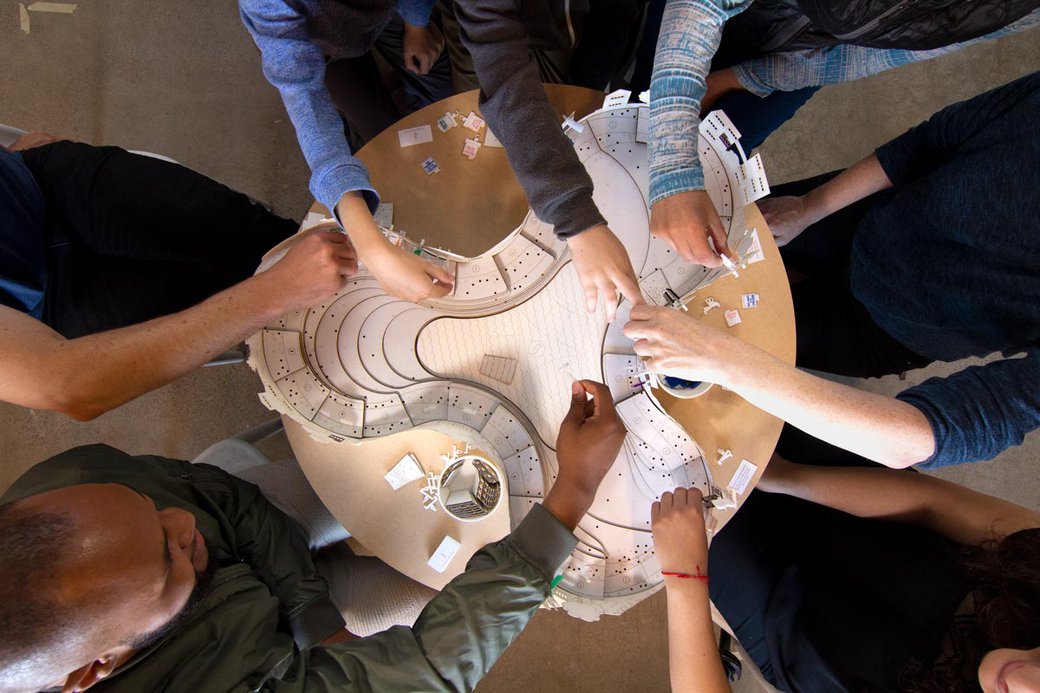Architecture concentrations
Three areas of concentration are available to students in the Bachelor of Architecture (BArch) program: Digital Craft, Urban Works, and History Theory Experiments.
Overview
Specialized skill sets for a rapidly changing world

In addition to our main bachelor of architecture degree, we offer three optional concentrations that capitalize on our faculty’s expertise and our specialized research labs. Students who declare a concentration focus on either Digital Craft, Urban Works, or History/Theory/Experiments during their final two years of coursework. A portion of their advanced studios and seminars directly tie to ongoing initiatives in the Digital Craft Lab, Urban Works Agency, or History Theory Experiments. These architecture labs are deeply engaged with research, material innovation, and experimental practices.
Digital Craft
Expertise in new materials and technologies
The concentration in Digital Craft allows students to focus their advanced coursework in digital fabrication and advanced methods of digital design and visualization. Students choose from advanced studios and elective seminars in architectural computation, which directly tie to work in the Digital Craft Lab (DCL). The DCL often collaborates with artists, engineers, scientists, and designers on prototypes that support material innovation and responsible entrepreneurship.
Concentration requirements:
- Two advanced studios in Digital Craft (6 units each)
- Two electives in Digital Media (3 units each)
Urban Works
Leverage architectural design for social impact

The concentration in Urban Works allows students to focus their advanced coursework on some of the most pressing issues of our time, including climate change, water management, housing affordability, and the politics of property. Students choose from advanced studios and elective seminars in urbanism, which directly tie to work in the Urban Works Agency (UWA). The UWA often collaborates with interdisciplinary partners to produce original research and design projects that shape the spaces and protocols of the built environment.
Concentration requirements:
- Two advanced Urban Focus studios (6 units each)
- Two Urban electives (3 units each)
History/Theory/Experiments
New genres and methods of architectural history
The concentration in History/Theory/Experiments allows students to focus advanced coursework on experimental practices of architectural and urban history and theory. Students choose from advanced elective seminars that directly tie to work in the History Theory Experiments (HTX), a lab that researches new historical and theoretical methods of inquiry into the built environment. Recent HTX exhibitions and symposia have explored race and racial justice; reconstructing immaterial aspects of historical architecture, such as sound and smell; methods for digitally scanning artifacts and spaces; and augmented reality, in addition to other digital applications, for bringing architectural history to life.
Concentration requirements:
Three electives in History/Theory (3 units each)
Find your creative community at CCA